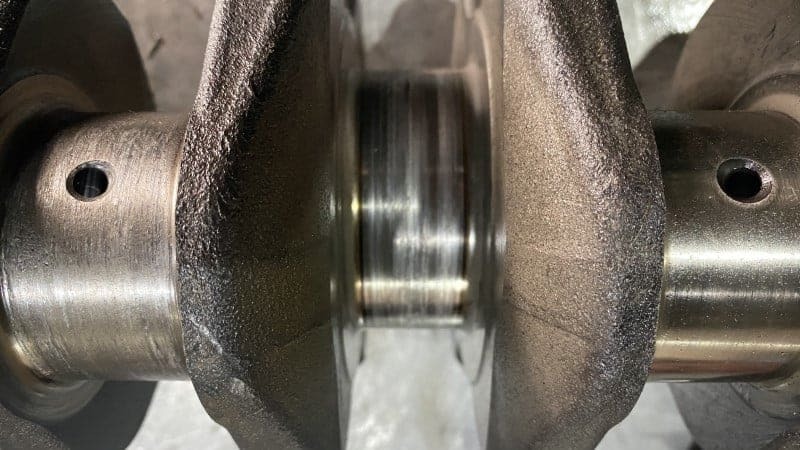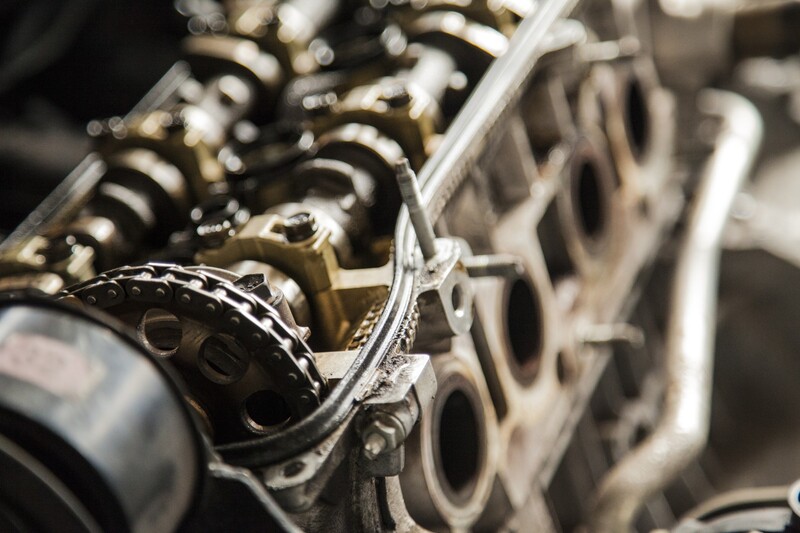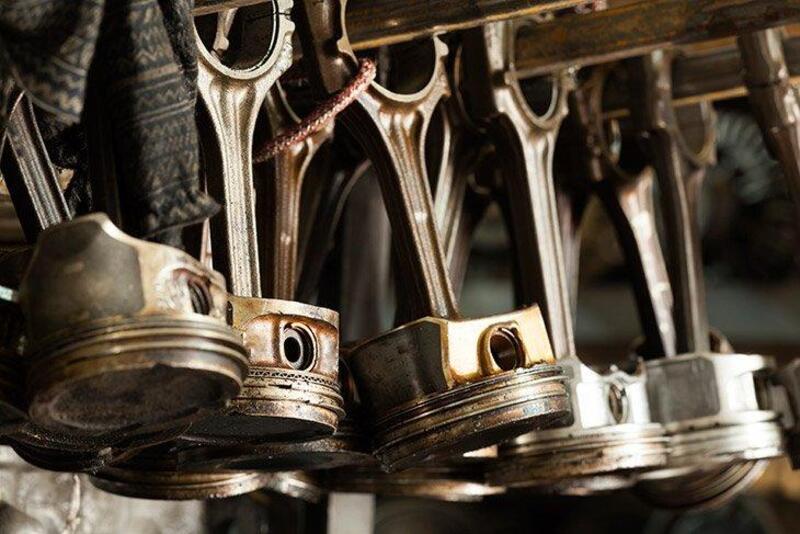What actually is a rod knock? What are the symptoms of rod knock? Does it have a telling effect on your vehicle?
Usually, when people experience rod knocks, they prefer to sell off their cars rather than go through the hassle of repairing them. This action is not surprising because rod knock can be very expensive to fix, but if you understand the symptoms that cause rod knock, you can prevent this disastrous fault from ever occurring in your vehicle.
This article examines the symptoms of rod knock and aims to describe simple ways to diagnose and fix this fault.
Let’s start!
What are the Symptoms of Rod Knock?
The sound of rod knock is pretty clear – when you open the hood and turn on the engine, you’ll hear clacking sound. If you notice this sound while driving, listen carefully to note if it worsens when you step on the gas – another indication that you’ve got rod knock.
And two major symptoms can alert you of the impending damage to your engine caused by rod Knocks.
These symptoms include:
Low Oil Pressure: One symptom that can be used to detect an impending rod knock is a drop in oil pressure. Whenever oil pressure reduces in the engine, the ‘check engine oil light’ on the dashboard will come on. The reduced oil pressure will lead to poor lubrication of the connecting rod bearings, leading to a rod knock.
Knocking Sounds: Just like any other regular knock, a sound is produced. Whenever you start your engine and hear loud knocking sounds coming from the engine that becomes louder when you throttle harder, then you are about to experience a rod knock.
What Is Rod Knock?
In simple terms, a rod knock occurs whenever the connecting rod of an engine gets free from its lubricated bearing on the crankshaft and comes in contact with (or strikes against) any other part of your engine.
The Major cause of rod knocks is inadequate lubrication of the bearings, which attach the connecting rods to the crankshaft. Some things that can cause insufficient lubrication of these bearings include dirty oil, low oil pressure, and low engine oil in your vehicle.

What Are the Causes of Rod Knock in a Car
In this section, we will be examining some causes of rod knock.
One major cause of the rod knock is a worn-out bearing. Bearings wear when the hydrodynamic oil film between the bearing’s surface on the connecting rod and the crankshaft journal is non-existent again.
Inadequate lubrication by the engine can also cause rod knock. Inadequate lubrication occurs when high oil temperature, insufficient oil pressure, poor oil viscosity, and improper oil flow on the bearing surface.
Running your engine at an extreme increase in RPM can also cause a rod knock. An increased RPM can generate more inertia force, overheat the bearings, and cause a rod knock.
Irrespective of the materials used to build the bearing, it would most likely expand and melt once it overheats. An expansion will cause an increase in the vibration of the connecting rods. Whenever the piston rod bearing melts, instant friction welding occurs, which can be disastrous for the whole engine.
Also Read: Low Engine Oil Pressure (Causes & Solutions)
How to Check if you Have a Rod Knock
Many symptoms signify that you have just experienced a rod knock; however, you must understand that not every sound emanating from your engine is a rod knock.
There are certain things you must do to confirm that the sound emanating from your engine is a rod knock, and some of these things include:
- Inspect all the pulleys, including the tensioner and your water pump pulley, to ensure that none are shaking or producing sound.
- Next, inspect your crankshaft flywheel and valve bearings to ensure they do not produce any knocking sounds.
If none of these vehicle components produce any sound, then there is a high possibility that a rod knock causes the sound you hear from your engine.
Next Check The Quality of Oil
Low quality and quantity of oil in your engine is one major cause of rod knocks. Therefore, if you’ve experienced a rod knock, there would be either low quality or low quantity of engine oil in your engine.
Follow the simple steps to confirm the condition of your engine oil;
- First, locate the dipstick on the body of your engine oil and pull it out.
- Next, please clean it up with a neat, dry rag.
- Confirm if your engine oil has a dark shade of brown or black
- Finally, repeat the last three steps again
If you confirm that the engine oil is dirty, you must drain and inspect it.
How to Avoid Rod Knock
Here is rod knock protection tips that you can use to prevent your engine from experiencing Rod knocks
- Ensure that you remove your legs from the throttle pedal at the sound of any knocking sound.
- Ensure to use high-quality fuel with recommended octane level for your vehicle.
- Add fuel additives to your fuel tank that help prevent carbon buildup in your vehicle’s combustion chamber.
- Ensure always to use recommended and high-performance spark plugs in your vehicle.
How to Fix Rod Knock Issues In a Car
In this section, we will examine steps that you can take yourself to correct a rod knock. These steps help reduce the effects of the rod knock in your engine before you visit your local mechanic for proper repairs.
These steps include:
Use Fuel Injection Cleaner: Dirty fuel can also lead to rod Knocks. Pouring fuel injection cleaner into your gas tank would reduce the probability of a rod knock occurring; however, if your vehicle uses a carburetor, you must use a carburetor cleaner to clean the carburetor.
Perform an Oil Change: The first thing to do is to carry an oil change service. In an oil change service, the old engine oil is drained out, and the oil filter is replaced with a newer one.
You can follow the steps described in the previous section to drain your engine oil.
Checked for Loosed Connecting Rods : For a more advanced rod knock issue, you can move further to remove the crankcase and inspect the connecting rod bearing. If the connecting rod bearings are loose, you should tighten them to the recommended torque, and if any are too damaged, replace them.
If the rod knock does not seem too serious, you can replace the old engine oil with a new and similar oil.
How Much Does it Cost to Fix Rod Knock
Depending on the vehicle’s brand and model, repairing work now can cause between $2500 to $5000. However, it is advisable to buy a new engine as fixing it might not bring it back to its former glory.

When You See These Symptoms You May not Have a Rod Knock Issue
Difference noises emanate from your engine bay occasionally. Sometimes these noises might sound like a rod knock occurred, but this may not be true sometimes.
Here is a list of problems that may imitate the symptoms of a rod knock;
- Sounds made from Bad Belt Tensioners/Pulleys
- Detonation knocks due to Poor Engine Timing
- Rod knock symptoms due to a faulty Knock Sensor
- Detonation knocks due to Your fuel’s low Octane level
- Detonation knocks due to Lean Air/Fuel Mixture
- Sounds created by Worn Bearings of the piston rods
Also Read: Bad Tie Rod Symptoms (Causes & Solutions)
Frequently Asked Questions – Symptoms of Rod Knock
How do you know if you have a rod knock?
You can know that your engine has just experienced a rod knock by hearing a knocking sound. Whenever you hear a noise similar to a metallic hammer striking a flat metallic surface emanating from your engine, you may have just experienced a rod knock.
Does rod knock mean a new machine?
Experiencing a rod knock does not mean you need a new engine; however, replacing the rod-knocked engine with a new one is advisable.
How much does it cost to fix a rod knock?
Fixing a rod knock can cause between $2000 to $5000, including labor costs.
Conclusion – Symptoms of Rod Knock
A rod knock can occur when your vehicle’s engine is experiencing a low engine oil level, poor quality engine oil, or worn-out bearings. Whenever rod knocks, occur, a loud sound is heard from the engine, resulting from the piston rods smashing into another engine component because the bearings on the crankshaft become loose or worn. It would be best to visit your local mechanic for a full diagnostic check whenever you hear a knocking sound.

